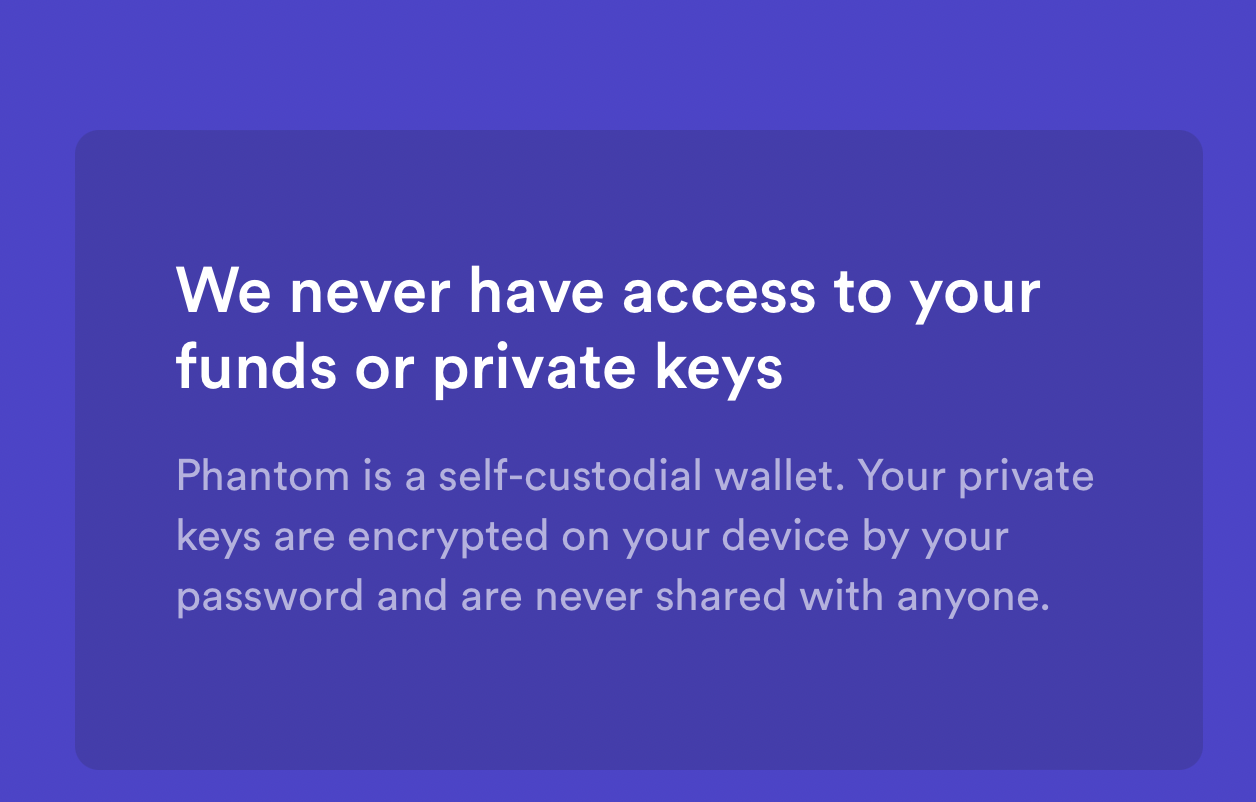I am thinking about starting my own product that will be something similar to a wallet. But I want to make sure I make everything as secure as possible so nothing gets leaked and it's not another slope incident. Currently, my idea was to use Fernet encryption to encrypt private keys and store them in my DB. But is there a more secure and better way?
-
the most secure way is to NOT store them in your DB ;) - added more details in the answer.– Concise LabsCommented Sep 28, 2022 at 6:03
-
Are you talking about user private keys or how to best store your organization's private keys like the program update authority, etc? For the latter, cold wallet or multisig with various trusted people in your organization.– WhitesealCommented Sep 29, 2022 at 0:48
-
Users @Whiteseal– PixeledCommented Sep 29, 2022 at 20:49
2 Answers
Storing private keys of other users is NOT ideal.
I don't see the need for you to store the keys in a DB (on the server) if you are trying to build a product like a wallet.
for example, Phantom stores it on the users device:
-
This won’t be an app or somewhere where I can store it on their end. Is a database the only way?– PixeledCommented Sep 29, 2022 at 20:48
-
I am unable to do anything with the users device nor access any files. Can’t think of many other ways– PixeledCommented Sep 29, 2022 at 21:02
-
storing in a DB is one thing, but if you(your app) have to use the private keys to take an action on behalf of the users, the users need to unconditionally TRUST your application to do the right thing. Essentially handover the custody to you, is this a tradeoff you and your users should be comfortable with, no? Commented Sep 30, 2022 at 4:56
If - for what reason ever - you need to store the users' private keys on your server, then you must include a secure transport from the user to your server in your considerations. The best option is to encrypt the data end-to-end, which means they need to be encrypted on the user's device with a key so only the user can decrypt it, and you should not get knowledge of that encryption key under any circumstances. This makes it impossible for other parties (including) to access the private data.
To accomplish that, you must not use symmetric encryption, but asymmetric or hybrid encryption (the latter uses symmetric encryption for the data, but uses asymmetric encryption for the encryption key itself).
In general, avoid inventing your own stuff, instead check the approaches in proven solutions that already exist (keypass could be one of them).
-
Do you know any modules that can help with this option in python?– PixeledCommented Sep 29, 2022 at 21:59
-
I have no personal experience with this in Python, but if the client has access to a GnuPG installation, I'd suggest to take a look at python-gnupg. Otherwise, py-pgp may be the right choice. Also take a look at How to do PGP in Python (generate keys, encrypt/decrypt). Commented Sep 30, 2022 at 7:14
